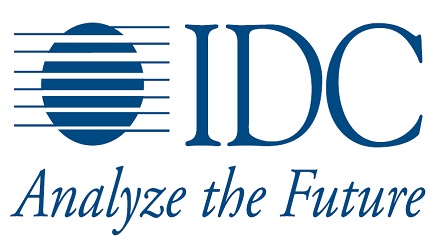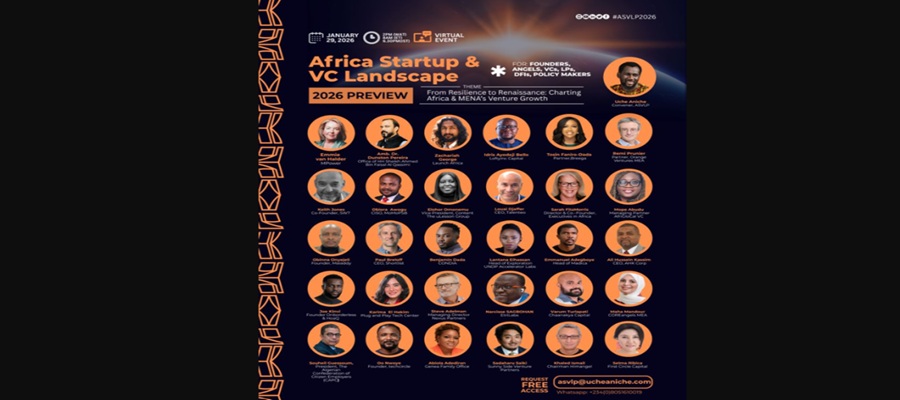Telecom
30% Enterprise in Nigeria Implemented M2M Technology – IDC

While the uptake of machine-to-machine (M2M) technologies is currently limited in Nigeria, improving data-transfer speeds will play a key role in driving future adoption of the concept, according to the latest insights gleaned from IDC’s Annual Enterprise Communication Survey.
The research shows that only 30% of enterprises in Nigeria have implemented M2M technology in some form or other, with security monitoring, fleet management, and point-of-sale machines currently accounting for the majority of M2M connections in Nigeria.
Advanced M2M applications such as smart metering, pay-as-you-drive-insurance, and intelligence building are not currently widely used in Nigeria, with connectivity issues and the complexities involved in implementing and managing such technologies serving as the key inhibitors.
IDC believes connectivity will be a major driver for the future adoption of M2M and the Internet of Things (IoT). Indeed, the research and advisory firm’s latest report, ‘M2M, Internet of Things, and Voice Trends and Priorities in Nigeria, 2013: Survey Results’, anticipates strong growth in the M2M/IoT market as data-transfer speeds improve in the country.
Connectivity in Nigeria is currently not very reliable, and even the country’s telecommunications regulatory body – the Nigeria Communications Commission (NCC) – has raised concerns about the quality of service levels among operators.
However, with the regulator keen on implementing a national broadband policy, IDC expects voice and data connectivity to improve considerably over the coming years and thereby facilitate greater uptake of more complex M2M/IoT technologies.
IDC’s Enterprise Communication Survey also revealed that businesses in Nigeria prefer to use traditional fixed-line telephony for outbound calls over mobile and even VoIP. In fact, 42% of Nigerian enterprises’ outbound voice traffic is conducted via traditional fixed-line telephony, while mobile telephony accounts for 33% of outbound voice traffic and VoIP/private voice networks account for the remaining 25%.
“Nigeria is a very price-sensitive market and IDC is of the opinion that the lower tariffs offered by fixed-line operators are the primary motivator for enterprises choosing this particular medium.
However, with unified communications gaining traction in Nigeria, VoIP adoption by businesses is expected to grow because it offers an even cheaper platform for making voice calls. But as with M2M/IoT connections, the growth in VoIP will be inextricably linked to the quality of data connectivity,” said Oluwole Babatope a telecommunications and networking research analyst with IDC West Africa.
The research showed that Nigerian businesses typically prefer to buy a combination of services from one provider, with one point of contact and one bill. IDC believes this is primarily driven by cost-reduction initiatives.
“The preferences exhibited by Nigerian enterprises show that communication service providers enjoy a first-mover advantage when it comes to providing fixed and mobile voice services and data services,” continued Babatope.
“IT and hosting services companies, meanwhile, have the edge in providing network services in tandem with IT or cloud services.
“The most important factors influencing the selection of a network provider by Nigerian businesses are pricing and the quality of service and support. Quality of service has been a major challenge for enterprises in Nigeria in recent years, and IDC expects enterprises to increasingly gravitate toward network providers that can demonstrate consistent quality of service and offer price points that match their budgets.”
IDC’s ‘M2M, Internet of Things, and Voice Trends and Priorities in Nigeria, 2013: Survey Results’ (IDC #CEMA20838) provides a succinct overview of M2M, IoT, and voice trends and priorities in Nigeria.
The study includes an overview of key industry developments in M2M and IoT, outlines key technology priorities for organizations, and presents an insightful analysis of the enterprise voice market in Nigeria.
The insights are based on continuous research with technology leads in various small and medium-sized businesses and large enterprises, industry experts from leading service providers, and inputs from IDC analysts in Africa.
Telecom
ASVLP 2026: Africa, MENA VCs Gear Up as Tech Funding Hits $4.1bn Rebound

As Africa and MENA’s startup ecosystems transition from post-correction resilience into a new phase of disciplined growth, the Africa Startup & VC Landscape Preview (ASVLP 2026) will convene leading founders, investors, policymakers, and ecosystem builders on January 29, 2026, for its second annual, agenda-setting virtual forum.

Following a challenging global venture cycle, 2025 marked a notable rebound across the African ecosystem, with startups raising an estimated $3.2–$3.3 billion over the full year.
The recovery was accompanied by significant structural shifts: Kenya emerged as the leading destination among Africa’s “Big Four” markets for the first time, while Nigeria recorded a year-on-year funding decline, reflecting changing investor preferences, macroeconomic pressures, and a broader recalibration toward capital efficiency and sustainability.
Sectorally, fintech remained the most funded vertical, while climate & energy, AI-enabled solutions, healthtech, and infrastructure-adjacent businesses gained increasing attention. Across Africa and MENA, development finance institutions (DFIs) and family offices played a more pronounced role in anchoring funds, deploying catalytic capital, and supporting blended-finance structures, reshaping how early-stage and growth capital is mobilized.
ASVLP 2026 is designed to translate these data points into forward-looking strategy.
The forum will bring together venture capitalists, angel investors, LPs, DFIs, family offices, founders, corporate leaders, and regulators from Africa, MENA, Europe, and North America to assess 2025 outcomes and chart priorities for 2026.
The program will feature keynotes, fireside chats, panels, and deep-dive roundtables, including discussions on:
· The 2026 Africa & MENA FinTech Landscape, focusing on security, profitability, regulation, and growth frontiers
· Emerging Fund Managers, capital formation, and LP alignment
· Talent, operator depth, and institutional capacity as constraints to scale
· Regulatory evolution and cross-border market integration
A major highlight of ASVLP 2026 will be the Final DealRoom Pitch Session, where a curated group of high-potential startups will present to an experienced panel of investors.
• Founders can apply to pitch via: bit.ly/ASVLP-DR-Founders
• Investors seeking DealRoom access can request entry via: bit.ly/ASVLP-DR-Investors
Confirmed speakers for ASVLP 2026 include Khaled Ismail (HIMangel), Idris Ayodeji Bello (LoftyInc Capital), Zachariah George (Launch Africa), Tosin Faniro-Dada (Breega), Selma Ribica (FirstCircle Capital), Maha Mandour (COREangels MEA), Joe Kinvi (Borderless), Remi Prunier (Orange Ventures MEA), Karima El Hakim (Plug and Play Tech Center), Souheil Guessoum (President, The Confederation of Citizen Employers – Algeria (CAPC)), Remi Prunier (Partner, Orange Ventures, MEA), Maha Mandour (COREAngels MEA), Ali Hussein (President, Kenyan FinTech Association), Patrick Okebu (CIO, Interswitch Group) among other leading voices shaping capital, policy, and innovation across the region.
“The conversation has shifted,” said Uche Aniche, Convener of ASVLP. “It’s no longer about whether capital will return to Africa and MENA, but what kind of capital, deployed with what discipline, and in service of which long-term outcomes. ASVLP exists to help the ecosystem make sense of that transition.”
Participation in ASVLP 2026 is free but strictly by invitation.
Interested participants are encouraged to repost the official announcement on LinkedIn and comment #ASVLP2026 to receive a private registration link. They could also email [email protected] and request invite.
Telecom
TikTok, Instagram Blamed in US Youth Suicide Lawsuit

Major social media giants Meta Platforms, TikTok and Alphabet’s YouTube will face a landmark jury trial this week in Los Angeles County Superior Court over allegations that their addictive designs have fuelled a youth mental health crisis, marking the first such case to reach this stage.

Social Media
The pivotal personal injury lawsuit centres on a 19-year-old Californian woman identified as K.G.M., who claims her childhood immersion in Instagram, Facebook, YouTube and TikTok—engineered with endless scrolls, autoplay videos, notifications and algorithms—sparked severe anxiety, depression and suicidal thoughts.
Dozens of similar suits have surged since 2022 from families, schools and states, accusing the firms of burying internal research on teen harms while prioritising ad revenue through youth-targeted engagement hooks, despite Section 230 protections for user content.
Plaintiffs seek damages and design overhauls, arguing platforms bypassed parents and preyed on vulnerable kids; defendants counter there’s no clinical “social media addiction” diagnosis, no proven causation—kids with issues often use less—and they’ve added safeguards like parental controls and time limits.
Echoing Australia’s under-16 bans, the trial will scrutinise thousands of internal documents, expert testimonies and K.G.M.’s story, potentially expanding tech liability amid debates where studies show complex links, not direct causation, between screen time and disorders like eating issues or self-harm.
A win could mandate warning labels, age gates or algorithm tweaks, reshaping global platforms as U.S. Surgeon General advisories and global scrutiny intensify pressure on Big Tech to prioritise child safety over profits.
Telecom
Meta Tests Paid Subscriptions Across Instagram, Facebook, WhatsApp

Meta is gearing up to trial paid subscription services on Instagram, Facebook, and WhatsApp, aiming to diversify revenue streams beyond advertising while maintaining free core access for all users.

Meta
The subscriptions will offer enhanced tools tailored for everyday users, creators, and businesses, including advanced content creation, sharing, and workflow features distinct from the existing Meta Verified verification program. Unlike a uniform rollout, Meta plans varied testing formats per app to match diverse audiences, experimenting with feature bundles based on user feedback to refine the model.
A key element involves integrating Manus, the autonomous agent firm Meta acquired for $2 billion in December, into these apps alongside its enterprise sales. Manus enables complex task automation with minimal input, with early signs like Instagram shortcuts already spotted by reverse engineer Alessandro Paluzzi.
Video tools feature prominently: Meta’s Vibes short-form video generator in the Meta AI app shifts to freemium, where paid tiers unlock higher monthly creation limits beyond the free baseline. On Instagram, subscriptions could enable unlimited audience lists, non-follower tracking, and anonymous Story views, though specifics for Facebook and WhatsApp remain under wraps.
Drawing from Meta Verified’s 2023 launch—which provides badges, support, and protection mainly for creators—these broader plans target wider appeal amid industry shifts. Ad growth slows against TikTok competition, while Snapchat+ boasts 16 million subscribers at $3.99 monthly, proving demand for value-driven paid perks despite subscription fatigue risks from streaming and storage fees.
Meta will phase tests gradually, prioritizing feedback to shape long-term viability without alienating free users.

 News3 days ago
News3 days agoLIRS to Invoke NTAA to Recover Unpaid Taxes from Bank Accounts, Others

 News3 days ago
News3 days agoAnambra Cuts Monday Pay to Kill Sit-at-Home

 E-Financial3 days ago
E-Financial3 days agoNIBSS, Others Flag 13,417 Nigerian Fraudsters on Person of Interest Portal

 E-Financial3 days ago
E-Financial3 days agoFirst Asset Management Receives Upgraded Ratings from Agusto &Co and DataPro

 E-Financial3 days ago
E-Financial3 days agoCBN Prepares Fresh Debit Card Rules to Improve ATM Services

 General News3 days ago
General News3 days agoNigeria Treats Religious Violence as Attack on State – NSA Ribadu

 E-Financial2 days ago
E-Financial2 days agoCBN Upgrades Licences of Opay, Moniepoint, Kuda, Palmpay, Paga to National Status
- E-Financial2 days ago
Nigeria’s 9 Top FinTech Firms Valued at $10.6Bn in January 2026

























